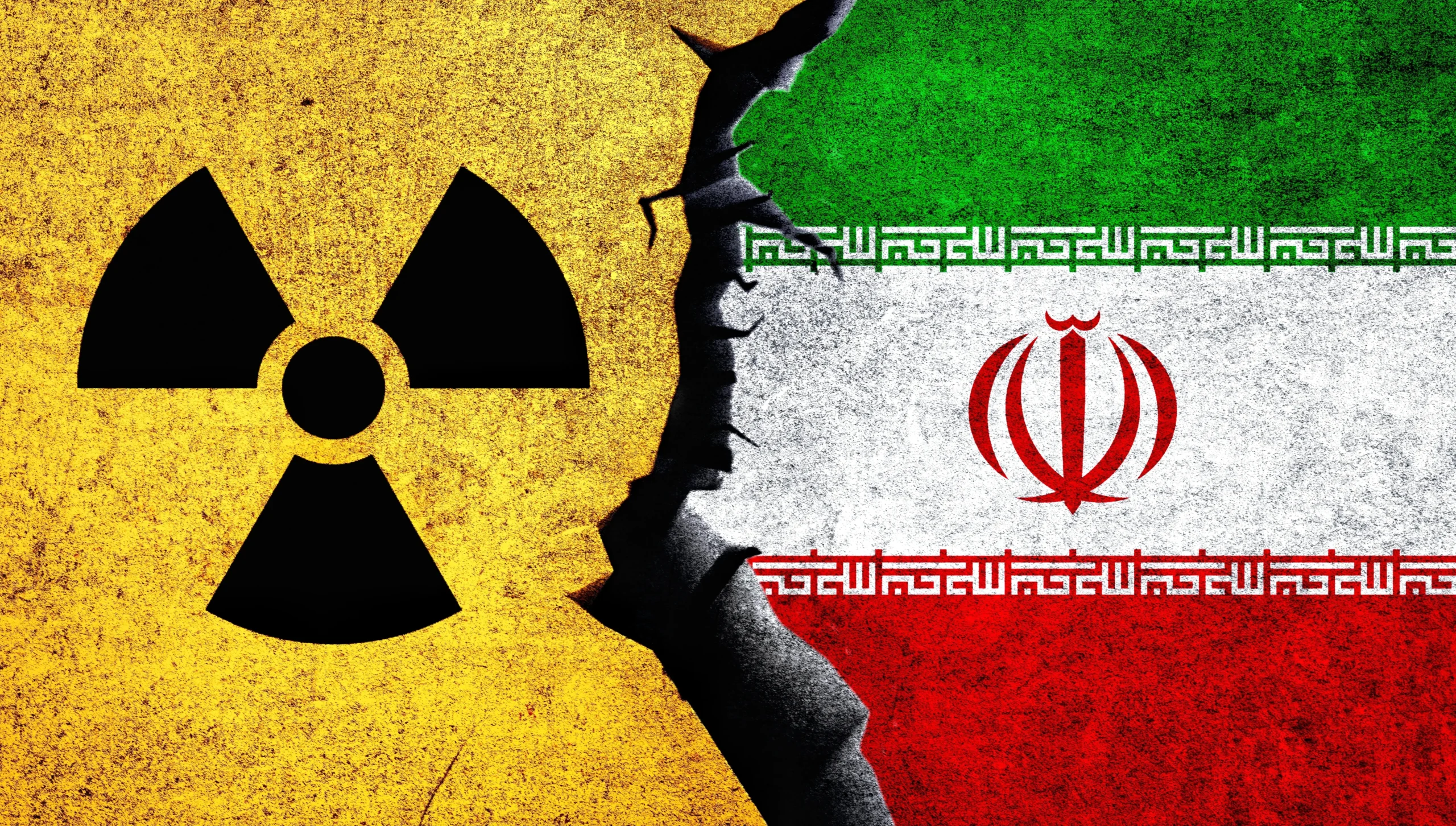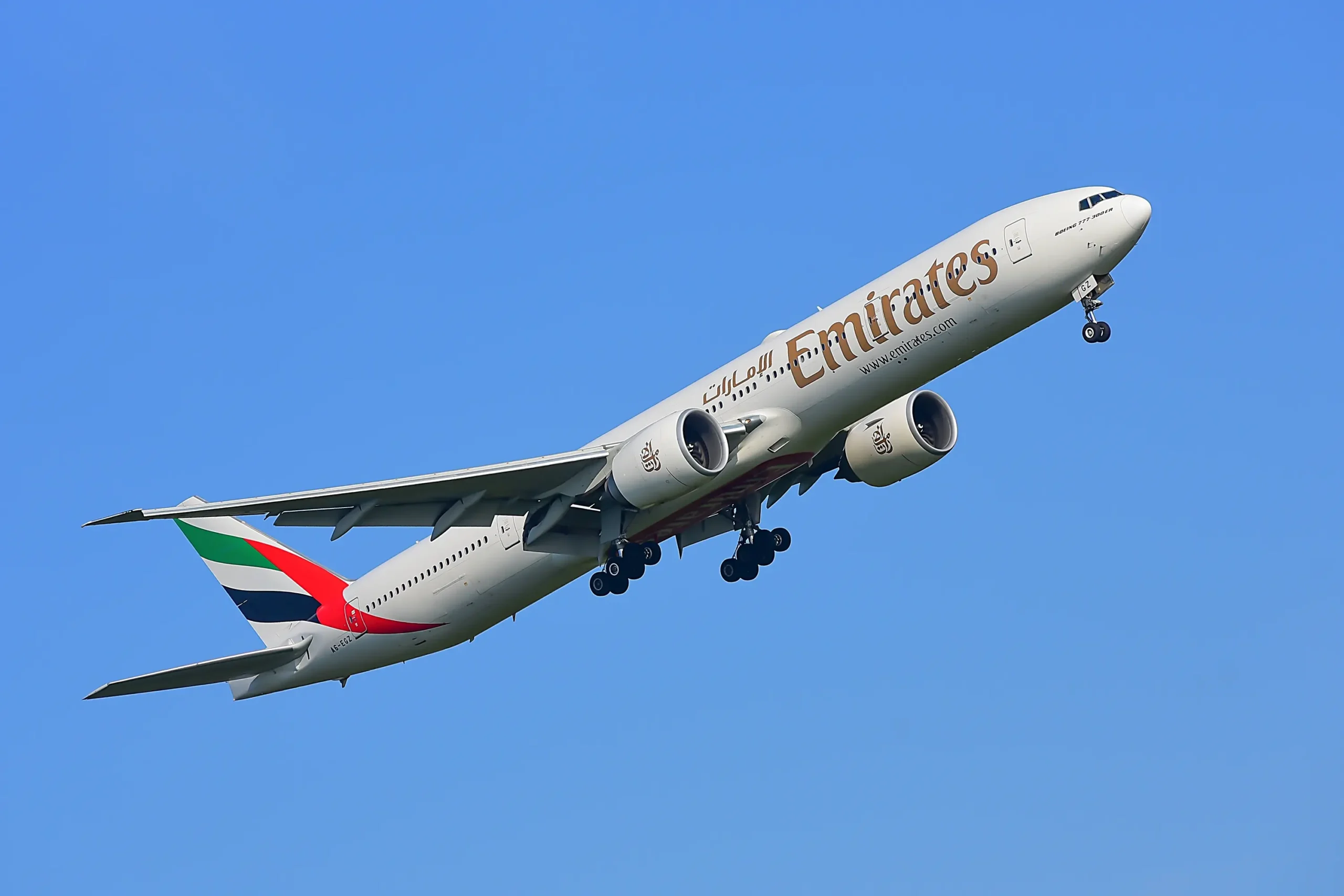In a fast-paced world driven by technological advances, the global landscape is being reshaped by the rapid rise of Artificial Intelligence (AI), a technology that is playing a vital role in bringing in major economic shifts, unleashing a new era of GDP growth. One of the most active regions concerning AI integration is the Middle East, a region not only observing or keeping up, rather revolutionizing this integration as governments across the region harness the power of AI to reshape their policies, implement national strategies, attract smarter investments while powerfully reconstructing their futures. Such adaptation has already borne fruit, as different economies in the region became more agile and dynamic, systems evolved to operate more efficiently and smarter, resulting in providing better services to their respective populations.
Despite the rapid progress and fast growth of AI in the Middle East, the region still faces a set of challenges, including the lack of properly trained individuals and the constant need of innovative solutions and new ways to narrow this gap. On the other hand, the region lacks legislative framework to regulate the use of AI in a fair and ethical manner. While a growing need for sustainable infrastructure development underlines the fact that more work is still required, overcoming these obstacles and challenges will lead to unlock the region’s full potential, overcome competition and become a major player in the AI world globally.
Middle East's Embrace of AI
AI is set to revolutionize and radically change, playing a major role in boosting productivity and elevate the GDP of the global economy through strategic investments in emerging technologies. Indeed, between 2026 and 2030, AI impact on the different economies is set to be monumental, PwC projects estimation for a global contribution of up to $15.7 trillion by 2030, while International Data Corporation (IDC) places it even higher at $19.9 trillion. Such predicted growth will be driven by different factors, including productivity gains, new products and services creation, routine tasks automation, ultimately leading to more strategic decision-making process across various industries.
By 2030, China and North America are expected to benefit the most from AI-driven economic growth, with an increase in their GDPs accounting for 26% and 14.5% respectively, jointly capturing approximately a total of $10.7 trillion in economic value—approximately 70% of AI’s overall global contribution. To keep up with such technological advances, governments and businesses across the Middle East region are increasingly adapting to embrace the fourth industrial revolution overtaking the world.
Gulf Cooperation Council (GCC) nations, in particular, regard AI as a cornerstone of national development agendas, focusing on economic diversification and building knowledge-based economies. Saudi Arabia’s Vision 2030 underlines this factor, where in it, AI plays a pivotal role in efforts to reduce the state’s reliance on oil revenues. Vision 2030 in Saudi Arabia is reinforced by the National Strategy for Data, implementing megaprojects relying on AI, such as NEOM, an AI-powered smart city. Saudi Arabia aims to attract $20 billion in data and AI investments and foster over 300 AI startups through programs like the $1 billion Generative AI (GenAI) accelerator and Alat, a PIF initiative committing $100 billion by 2030 to AI and semiconductors.
In May 2025, Saudi Arabia introduced an innovative initiative- HUMAIN—which is designed to orchestrate a unique AI ecosystem, which incorporates advanced data centres, the development of a state-of-the-art Arabic large language model. HUMAIN, aligned with Vision 2030 strategic goals, is poised to position Saudi Arabia, by the end of the decade, as a leading global hub for AI innovation, already securing over $23 billion in strategic partnerships with global tech players, including NVIDIA, AMD, and AWS, with futuristic plans of deploying a $10 billion venture fund aiming at supporting AI startups worldwide. HUMAIN, aims within the next five year at managing 7% of the global AI workload. Accelerating AI adoption and innovation in Saudi Arabia is backed by major financial commitments, as the country announced a $14.9 billion investment at LEAP 2025 conference directed toward assorted AI-related initiatives spanning across various fields including research and development, data infrastructure, government services, and educational reforms.
Similarly, the National AI Strategy 2031 of the United Arab Emirates (UAE), led by its designated Ministry of AI, aims at positioning the UAE as a global leader in AI implementation and innovation, supported by a massive $100 billion MGX fund. The UAE is actively encouraging AI use through key strategic collaborations. It has collaborated with OpenAI to enable statewide access to ChatGPT Plus, increasing the deployment of advanced GenAI in industries such as business and education. To enable this, NVIDIA is partnering with Khazna Data Centers to build “AI factories”—large-scale AI computing infrastructure needed for creating and deploying sophisticated AI models across the Middle East and Africa, including a proposed 5GW UAE-U.S. AI campus in Abu Dhabi. Other nations such as Qatar and Egypt, among others, are also integrating AI solutions/innovations within their domestic long-term development plans.
This continuous momentum is sustained by the deployment of advanced infrastructure, including 5G widespread connectivity, highly efficient cloud computing software, all complimented by the establishment of powerful local data centres. Simultaneously, the region works tirelessly to diversify and increase its AI oriented calibres, by inaugurating institutions, like Mohamed bin Zayed University of Artificial Intelligence (MBZUAI), in Abu Dhabi, aimed at upskilling the populations’ different talented individuals.
Notably, AI adoption rates within the GCC countries already exceed global benchmarks and averages. A recent McKinsey survey revealed that 62% of GCC organizations utilize at least one AI-powered application, which surpasses rates observed in North America (59%), Europe (49%), and Asia-Pacific (55%). Additionally, another recent study from BCG indicates that nearly half of firms in the GCC (47%) are actively generating AI based business values, embedding them into their core operations.
All these efforts place the Middle East at the forefront of the race, making it a major player revolutionizing the AI global landscape.
AI's Economic Impact in the Middle East
The Middle East is at the brink of a defining moment, with AI set to play a significant role in reshaping the region’s economic landscape. By 2030, AI’s contribution toward the region’s GDP is set at $320 billion, with around $260 billion direct contribution from Gulf nations according to recent studies from PwC. In countries like Saudi Arabia and the UAE, AI is not a luxury, it’s rather widely regarded as a cornerstone of their domestic and national visions, which aims at the diversification of their economies and cement their position as leaders of global technological innovation.
On a national level, Saudi Arabia is poised to be the main beneficiary from AI, with projected economic gains. The UAE, meanwhile, is experiencing AI’s highest relative impact om its economy. Collectively, other GCC nations mainly Bahrain, Kuwait, Oman, and Qatar are projected to see considerable economic contributions from AI. Despite the impact of AI with projected contributions between 20% and 34%, this growth Is expected to increase over time, led by two nations: Saudi Arabia and the UAE.
Most of AI’s impact comes from the automation process of repetitive tasks, helping workers to become more efficient and perform more proactively, allowing them to direct their full potentials and concentrate on more valuable and strategic work. An excellent example would be Saudi Arabia’s Aramco, a company which has successfully and efficiently utilized AI tools and diagnosis since 2010, leading to a huge reduction in flare emissions (down by 50%) in the past 15 years. Various studies conclude that 70% of tech intellectuals in Gulf nations recognize how AI adoption helped in boosting their productivity and efficiency.
AI, beyond improving workflows and decision-making, is also reshaping consumers’ mindset toward products and services, making them more personalized, varied, and affordable. This contribution is clearly visible in key industries, mainly retail and consumer goods, with 75% of companies adopting and embracing AI, enabling them to deliver a far more personalized experience to their respective customers based on analysed and efficiently forecast data.
In the oil and gas industry, companies like ADNOC and Aramco achieved significant cost savings backed by AI predictive maintenance and reservoir management technologies. Meanwhile, in the banking sector, AI applications such as fraud detection and robo-advisory could by 2030, unlock new opportunities while generating around $15–$20 billion in investments. Another area poised for transformation is the healthcare sector, with an estimated $10 to $15 billion in efficiencies, improving diagnostics, patient monitoring, and overall automation.
Additionally, large-scale smart city projects, such as Saudi Arabia’s NEOM and UAE’s Smart Dubai, incorporates AI at the heart of their infrastructure and service design, revolutionizing smart concepts, potentially generating over $50 billion in AI-driven economic value over the next decade.
The region’s economic potential is poised for further growth, driven by emerging GenAI technologies. A recent study from McKinsey & Company forecasts an additional annual $21–$35 billion contribution from GenAI to GCC economies, on top of the $150 billion expected from traditional sources. Combined, both represents a 1.7% to 2.8% contribution to the region’s current non-oil GDP. However, to fully unlock its future and unlimited possibilities, the region must overcome a series of challenges, mainly structural and strategic barriers which could limit AI’s depth, reach, and long-term impact.
AI's Bottlenecks: Middle East Challenges
Despite the undeniable progress and bold vision adopted through the region when it comes to AI adoption, the Middle East still faces numerous challenges that could limit AI’s digital transformation benefits. These challenges, identified in a recent Deloitte report, a collaboration with MBZUAI that surveyed 155 companies in Saudi Arabia, the UAE, and Qatar, will be crucial to overcome for sustainable and equitable AI development throughout the entire region.
One of the most pressing widely recognized challenges is the visible talent and skills gap within the region’s labour force. Despite ongoing and relentless investments directed at educational reforms, a shortage in local experts familiar and excelling in AI-related fields remains noticeable, limiting long-term, homegrown capabilities development. Additionally, a large proportion of existing labour force throughout the region will continuously require extensive training programmes to upscale their skills to remain adaptable to AI-driven changes and trends. As an illustration, although Saudi Arabia and the UAE each have approximately 5,000 artificial intelligence specialists, these figures are still very low, particularly when compared to countries such as Germany, which has over 40,000 AI specialists.
Another critical area of concern is the development of strong AI data regulations and ethical frameworks. While a few countries within the region have already introduced efficient ethical principles and guidelines, enforceable laws regarding data privacy, transparency and accountability remain limited or fragmented. This regulatory gap could play a role in weaking public trust, enabling AI technologies misuse, creating legal uncertainty for different businesses across various sectors. Legislating strong and legally binding frameworks that adhere to social values is essential to ensure AI fair and responsible implementation. For example, while Dubai has made progress in developing data governance infrastructure, overall regional maturity in data governance across all businesses remains far lower than worldwide best practices.
Furthermore, infrastructure readiness and data concerns pose substantial obstacles. Although cloud utilization by many organizations within the region is growing and becoming widespread, others still favour hybrid or on-premises setups due to concerns related to data sovereignty and regulatory compliances issues. Weak data governance frameworks continue to limit AI solutions’ effective scalability. A significant proportion of decision-makers across the region still do not fully comprehend AI technologies, leading them to make weak and unplanned investment decisions leading businesses to losing strategic opportunities. Hence, because of the lack of AI literacy, many AI-driven projects remain stuck in testing phases and primitive stages, with few reaching full-scale deployment. Challenges like uncoordinated teamwork and solo efforts, complicated rules, and security risks make it harder to move forward with such technologies.
Finally, the ongoing geopolitical instability that immensely affects certain parts of the Middle East remains a major challenge for sustainable AI adoption and development process. Regional conflicts and tensions like the ongoing Israel-Hamas war constantly disrupt supply chains for essential hardware and components needed and utilized for building an effective AI ecosystem, reallocating much of their AI development designated funds and valuable resources to responds to immediate security threats and different humanitarian crises. Sanctions imposed on specific countries or organizations further complicates these challenges, restricting their access to advanced AI technologies and talented calibres and experts responsible for some of the most important international partnerships, all needed for development. All these factors combined, create a volatile and unpredictable operating environment consistently affecting the effective implementation of AI policies and attempts of long-term strategic planning for technological advancement.
While the region suffers from ongoing challenges, AI still offers tremendous potential for the Middle East to accelerate the development and diversification of their economies, enhance their productivity and revolutionize public services and offerings. While different countries across the region have demonstrated strong commitment toward AI implementation via their national strategies, visions and investments, its long-term success only depends on facing, addressing and overcoming theses multiple challenges, enabling the Middle East to finally harness the benefits of AI, not only as a tool of economic growth, but rather an inclusive driving force for sustainable growth across all levels, placing the region at the forefront of the global technological landscape.
References
Arab News. “AI adoption to add $150 billion to GCC economies by 2035.” Last modified October 3, 2024. https://www.arabnews.com/node/2589574/business-economy
Boston Consulting Group. “The GCC AI Pulse: Mapping the Region’s Readiness for an AI-Driven Future.” BCG. Accessed July 17, 2025. https://www.bcg.com/publications/2025/the-gcc-ai-pulse-mapping-the-regions-readiness-for-an-ai-driven-future
Deloitte. “State of AI in the Middle East.” Deloitte Middle East. Accessed July 12, 2025. https://www.deloitte.com/middle-east/en/services/consulting/perspectives/state-of-ai-in-the-middle-east.html
Digital Dubai. “Dubai State of AI Report.” Accessed July 10, 2025. https://www.digitaldubai.ae/docs/default-source/publications/dubai-state-of-ai-report.pdf?sfvrsn=a486e23f_5
Fast Company Middle East. “AI adoption will add $150 billion to GCC economies.” Accessed July 10 2025. https://fastcompanyme.com/news/ai-adoption-will-add-150-billion-to-gcc-economies/
Khaleej Times. “AI expected to contribute $260B to the GCC economy.” Last modified October 3, 2024. https://www.khaleejtimes.com/business/ai-expected-to-contribute-260b-to-the-gcc-economy?_refresh=true
PwC. “Sizing the prize: What’s the real value of AI for your business and how can you capitalise?” PwC Global. Accessed July 10, 2025. https://www.pwc.com/gx/en/issues/analytics/assets/pwc-ai-analysis-sizing-the-prize-report.pdf
PwC. “The potential impact of Artificial Intelligence in the Middle East.” PwC Middle East. Accessed July 13, 2025. https://www.pwc.com/m1/en/publications/potential-impact-artificial-intelligence-middle-east.html
PYMNTS. “Saudi Arabia And UAE Vie For Middle East AI Supremacy.” Last modified October 21, 2025. https://www.pymnts.com/artificial-intelligence-2/2025/saudi-arabia-and-uae-vie-for-middle-east-ai-supremacy/
The Arab Weekly. “Saudi Arabia to invest $20 billion in artificial intelligence projects.” Last modified January 21, 2024. https://thearabweekly.com/saudi-arabia-invest-20-billion-artificial-intelligence-projects
UAE Embassy in Washington, DC. “UAE, US Presidents Attend Unveiling of Phase 1 of New 5GW AI Campus in Abu Dhabi.” Last modified December 12, 2023. https://www.uae-embassy.org/news/uae-us-presidents-attend-unveiling-phase-1-new-5gw-ai-campus-abu-dhabi















Comments